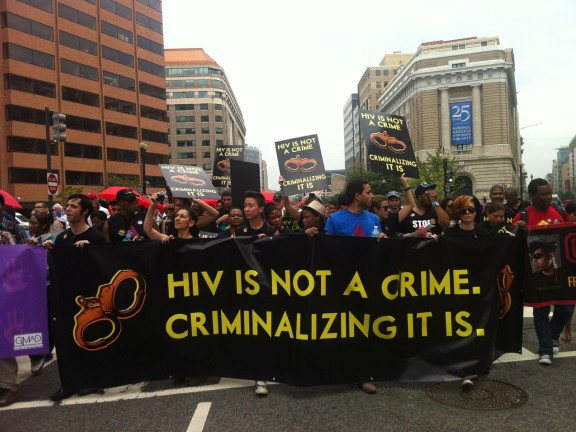Stop the Insanity

My niece Veronica, who is in her early 30’s, told me this morning about a friend of hers who is dying of cervical cancer. Diagnosed only a year ago, Veronica’s friend already is in hospice care. She has young children who will be without a mother before long.
Most, if not all, cervical cancer is caused by various strains of the sexually transmitted human papilloma virus, or HPV. While most people get HPV without getting cancer, cervical cancer in the absence of HPV is rare. Unfortunately, HPV is also the most commonly sexual transmitted disease, so common that, according to the CDC, nearly all sexually active men and women get it at some time in their lives.
Herpes, another incurable sexually transmitted virus, appears to increase the risk that HPV infection will lead to cervical cancer. According to the CDC, about one in 6 people, or roughly 16%, aged 14 to 49 in the U.S. have genital herpes. Genital herpes is an additional problem for women who are pregnant or want to get pregnant, as it can cause miscarriage and premature delivery. Because herpes can be deadly if passed to the fetus or newborn, delivery via C-section rather than vaginal birth is recommended.
I am living with both of these viruses and most of you reading this are living at least with HPV. For me, as for many others, these viruses have had a permanent affect on my health and personal life. I was never told I was at risk, and was very unhappy when I eventually learned what the matter was. But it never occurred to me to sue, let alone criminally charge, the suspected disease source(s). While plenty of the overwhelming majority of people out there with HPV or herpes may have considered filing a civil case against a current or ex lover, I bet few if any ever thought about going to the police.
Why do so many of us lose our reason and embrace criminal law and prison for sexually active people who may not always disclose their HIV status? Why do so many people, even in our own community, embrace the notion of “bad” people with HIV who are “reckless” and put others at risk and so should go to prison for a disease that is far less likely to kill anyone than the HPV-related cervical cancer Veronica’s friend is dying from?
I would love to see someone study that instead of continuing to measure people’s irrational reaction to HIV outside the context of how we live with and react to other serious diseases.
In the meantime, I can’t help but ponder: Is it the physical impact of HIV that leads people to treat it like a dangerous weapon? Or is it the scary stigma caused by its persistent association with queer people and others with damaged or limited social capital? If from the beginning HIV, like Legionnaire’s Disease, was a deadly scourge of mostly heterosexual people, and if almost all sexually active heterosexual people were living with HIV, would prosecutors and others be calling for felony prosecutions and sentences running decades for the sexually active among them? Does a prevalent heterosexual STI that has the most devastating impact on women (yes, it does cause throat and anal cancer in men and women as well) feel less in need of a criminal law response to policy makers?
I am definitely not suggesting that anyone with HPV or herpes or any sexually transmitted, infectious or communicable disease should now be treated like dangerous felons.
But culturally ingrained homophobia and the related ignorance about HIV stoke public fears that go unchallenged by government health authorities paid to manage and explain health issues that affect our communities. And in turn we get criminal law policies that reinforce the abysmal sexual health ignorance that puts millions of us at risk.
So I am suggesting that we call out the tolerance, silence and support by local and state officials for the HIV-related insanity of criminal law policies based on identity rather than intent or impact.